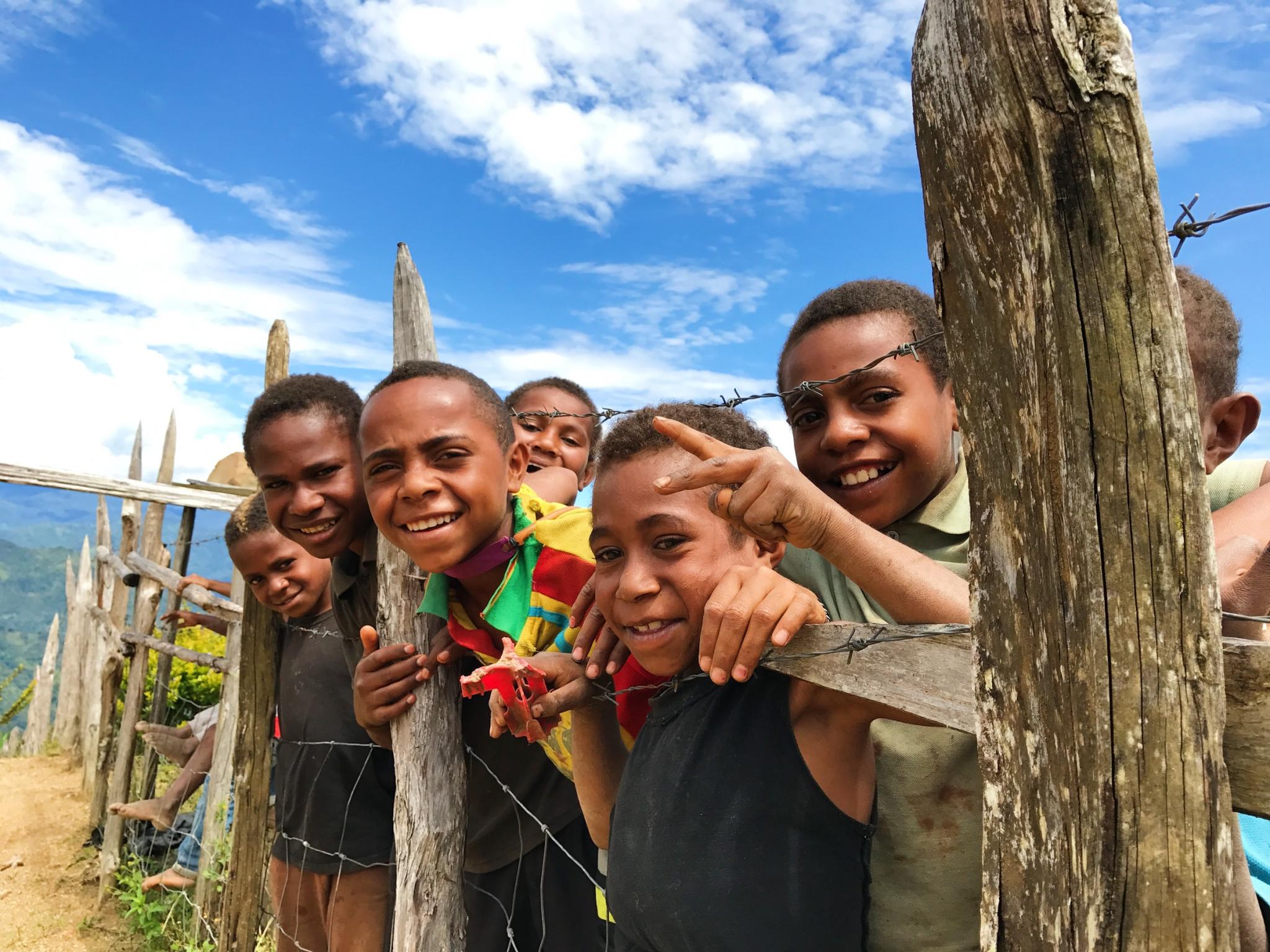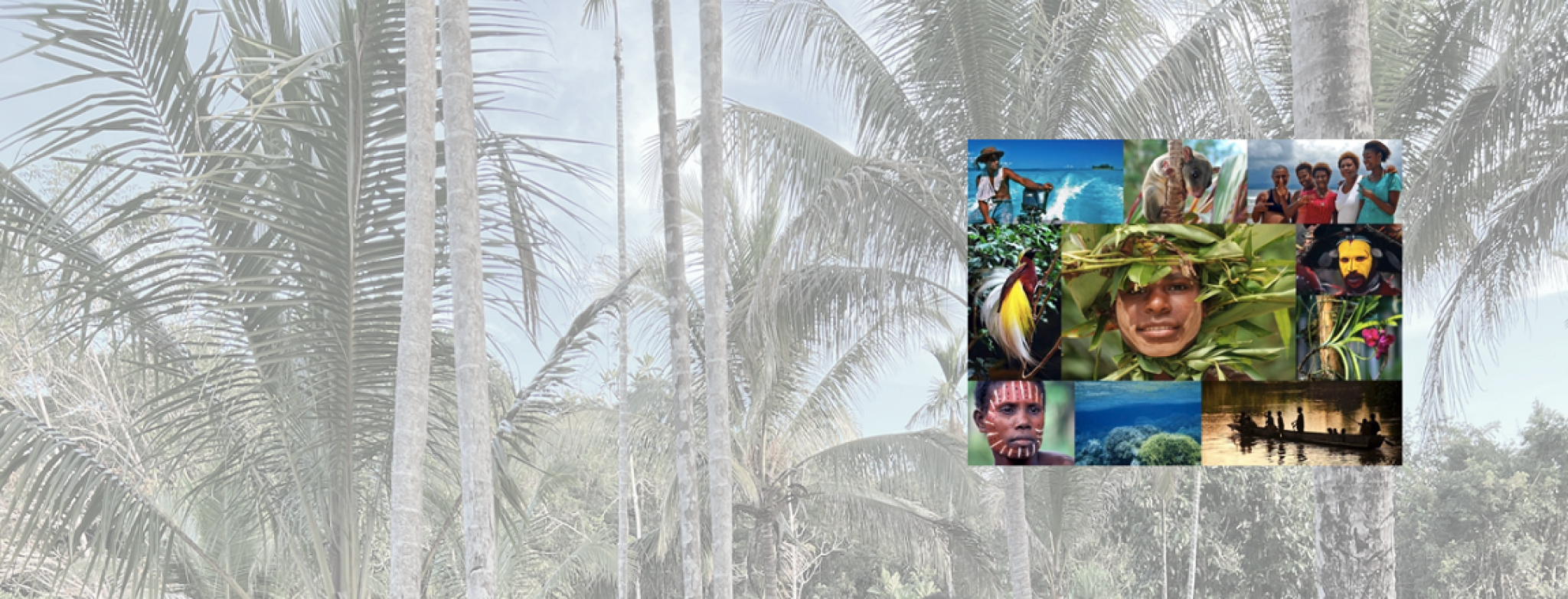Why Learn Tok Pisin?
With English and Motu, Tok Pisin is one of the three national languages of Papua New Guinea. With more than 6 million speakers it is the most widely spoken language in the country, and the fastest growing language in the Pacific. Knowing Tok Pisin enables one to communicate widely in Papua New Guinea, beyond the small circle of English-speakers that usually make up the major Papua New Guinean contacts of foreign visitors.
Knowledge of Tok Pisin opens the door to a deeper understanding of the Melanesian spirit, and the multitude of cultures whose languages shaped it. While English has widely taken over official meetings and other formal occasions in Papua New Guinea, Tok Pisin remains the everyday language of communication in most situations.
Study options
This is the first Tok Pisin program worldwide to be offered entirely online.
Currently students can complete a two-year minor in Tok Pisin at the rate of one course per semester. Tok Pisin can be studied as part of a degree or as a non-award subject at the University. The program is also open to external students and interested members of the public through Open Universities Australia.
Undergraduate courses Tok Pisin 1, Tok Pisin 2, Tok Pisin 3 and Tok Pisin 4 are all offered entirely online. See ANU Programs and Courses for study options.See Open Universities Australia for studying Tok Pisin 1-4 as subject.
In addition to semester-long courses Tok Pisin 1-4, CHL also offers a short intensive course Tok Pisin Language and Cultural Awareness (see below for more information).
The School of Culture, History & Language places a unique emphasis on in-country experience. For more information on exchange programs and in-country language opportunities, visit the ANU global programs or enquire education.chl@anu.edu.au.
ANU Students:
- Minor (24 units)
- Learn online
- Can be incorporated into Bachelors and/or Masters programs as electives
Non-ANU Students:
- Learn online as a Non Award Student
- Learn online via Open Universities Australia
Tok Pisin Minor
Learning Tok Pisin through the ANU program gives students a deep insight into Papua New Guinea’s diverse cultures, history, politics and economics. It also puts into context the relationships between Australia, Papua New Guinea, the Pacific and other global powers with political and economic interests in the region. Following the first year, during which basic grammar and conversation is taught, we embark on exploring authentic spoken Tok Pisin through a variety of audio-visual materials recorded in real-life situations and explore various non-technical topics such as the history of the language, the spiritual world, ancestral stories, witchcraft and violence, logging and mining, elections and politics…
Students completing Tok Pisin as Minor will gain competence in reading, writing, listening and speaking. They will be equipped to communicate in culturally appropriate ways in various social situations. This will place them in a favourable position to confidently pursue research, work, travel and any other interests related to Papua New Guinea.
Besides being the language that connects culturally and linguistically most diverse nation in the world, Tok Pisin is also a language which, though largely built on English vocabulary, carries the richness of Melanesian expression, deriving from many languages of Papua New Guinea. The last few decades saw this pidgin turned creole reaching far beyond its historical label ‘Pidgin English’ and becoming the cultural and political vehicle of a modern nation.
Yu save laikim Tok Pisin na PNG? Kam joinim yumi long Tok Pisin lans!
Tok Pisin lans em i wanpela bung bilong olgeta lain husat i save laikim Tok Pisin na PNG. Mipela save bung na stori long kainkain samting. Noken poret, noken sem, kam joinim yumi tasol, na singautim narapela lain i kam tu. Karim lans bilong yu i kam, o kam nating, laik bilong yu. Bai yu bungim ol lain bilong wokim wok painimaut long PNG, ol sumatin na narapela lain bilong ANU na bilong narapela hap tu.
Mipela save bung long olgeta Fonde long 12:30 long hap bilong sindaun autsait long Menzies Library. Taim bilong ren o taim bilong kol bai yumi bung insait long Coombs Tea Room.
Lukim yu long hap!
Tok Pisin lunches are informal gatherings, meant to bring together people who like Tok Pisin and PNG and are happy to forget about English for an hour, and chat in Tok Pisin instead. It doesn’t matter how much Tok Pisin you speak: everyone's welcome. You can bring your own lunch or coffee, or just come along. You will meet researchers, students and other Tok Pisin speakers from all around the campus and beyond.
We meet every Thursday at 12:30 in the barbecue area to the left of Menzies Library. When it rains or when it becomes too cold to sit outside, we meet in Coombs Tea Room. See you there!


